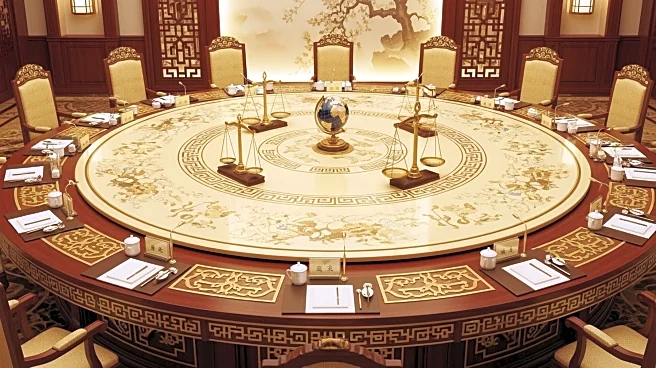What's Happening?
China's ruling Communist Party is convening in Beijing to strategize for the country's economic future through 2030. The meeting, known as the 'fourth plenum,' focuses on formulating the next five-year
plan amidst challenges such as an aging population, sluggish consumer spending, and trade tensions with the United States. China's economic model, historically driven by export-oriented industrialization, is under pressure to shift towards domestic consumption. However, consumer sentiment remains cautious due to factors like the COVID-19 pandemic, a competitive job market, and a limited social safety net. The meeting is expected to address these issues, including income inequality and social welfare.
Why It's Important?
The outcomes of this meeting are crucial for China's economic trajectory and its global trade relationships. As the world's second-largest economy, China's policy decisions can significantly impact international markets, especially in sectors like manufacturing and technology. The ongoing trade tensions with the U.S. and the strategic importance of rare earths highlight the geopolitical stakes involved. China's ability to navigate these challenges will influence global supply chains and economic stability. The meeting's focus on domestic consumption and social welfare could also signal shifts in China's economic priorities, affecting global economic dynamics.
What's Next?
Observers are keenly watching for policy announcements that could address China's economic challenges, such as measures to boost domestic consumption and manage industrial overcapacity. The potential meeting between President Trump and President Xi Jinping could offer a diplomatic avenue to ease trade tensions. Additionally, China's dominance in rare earths remains a strategic leverage point in trade disputes, with efforts to maintain this position likely to continue. The meeting's outcomes will be closely analyzed for their implications on China's economic policies and international trade relations.










